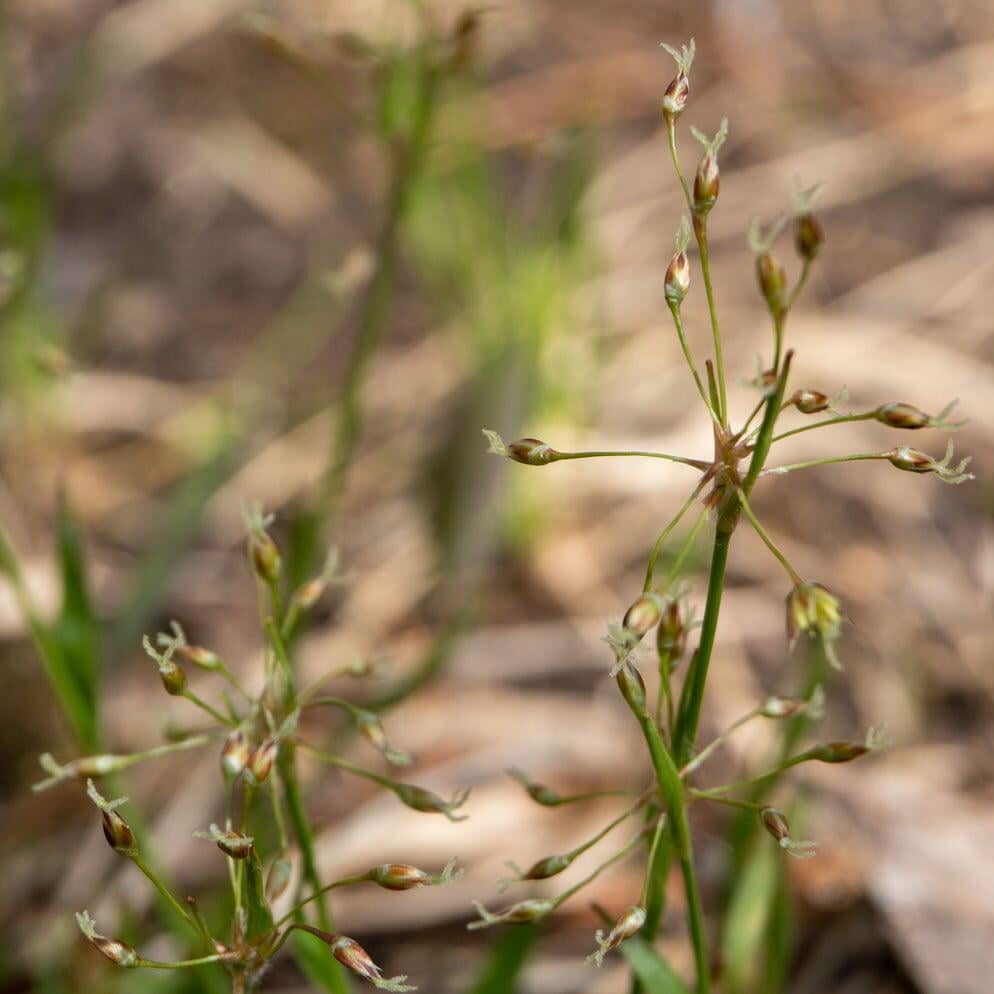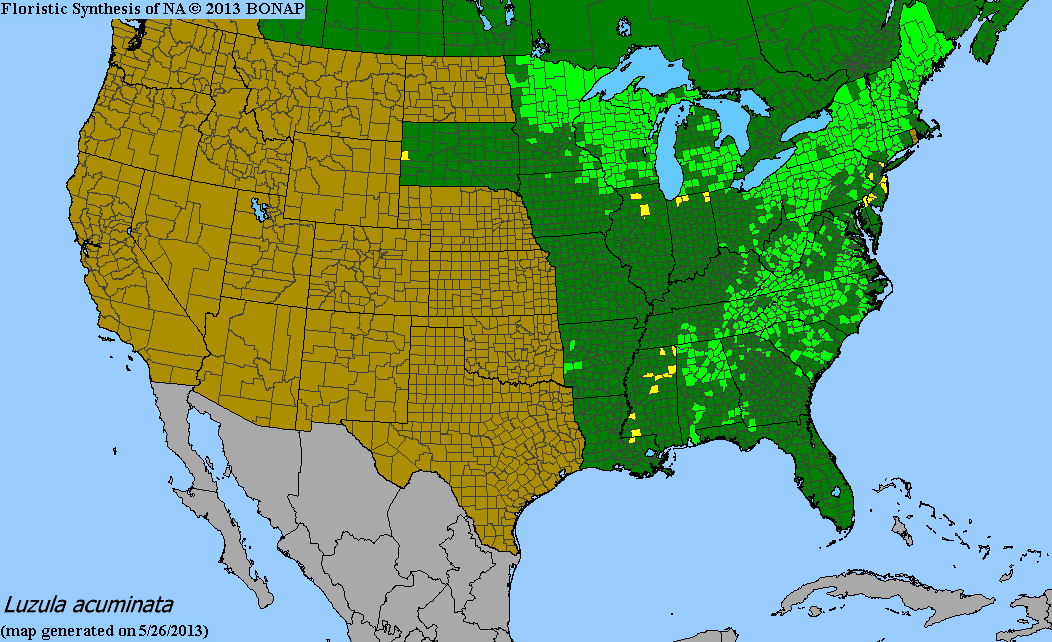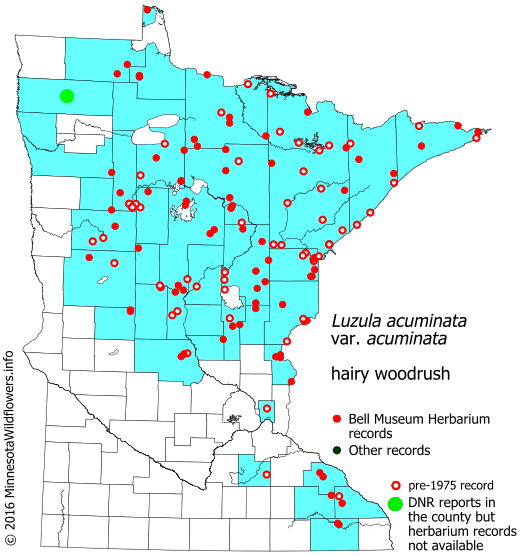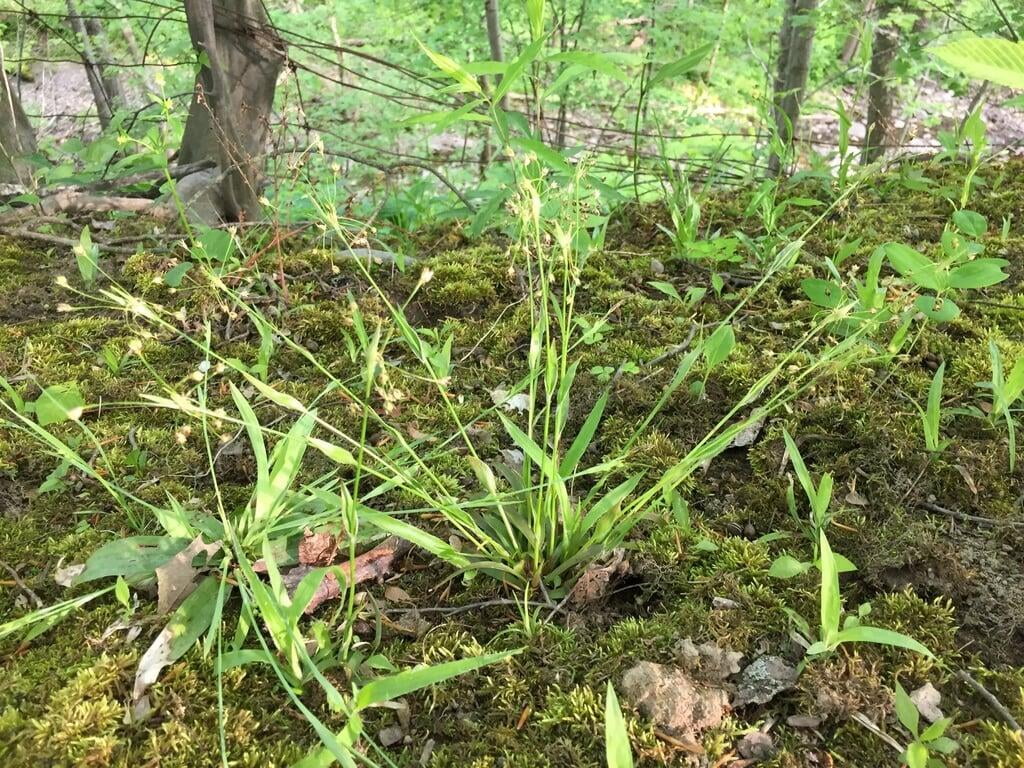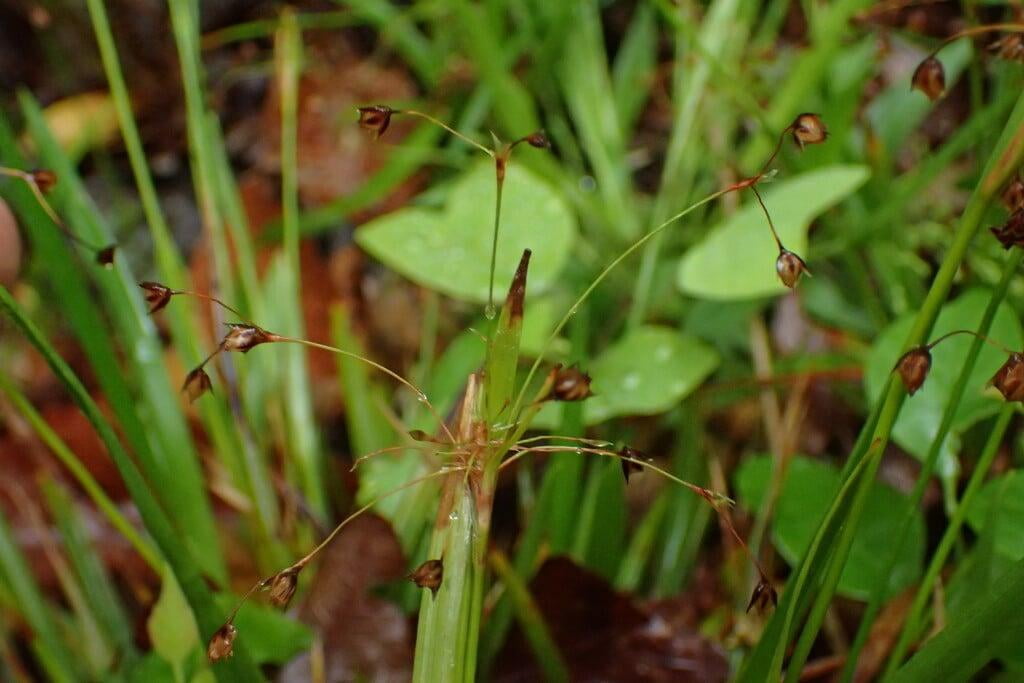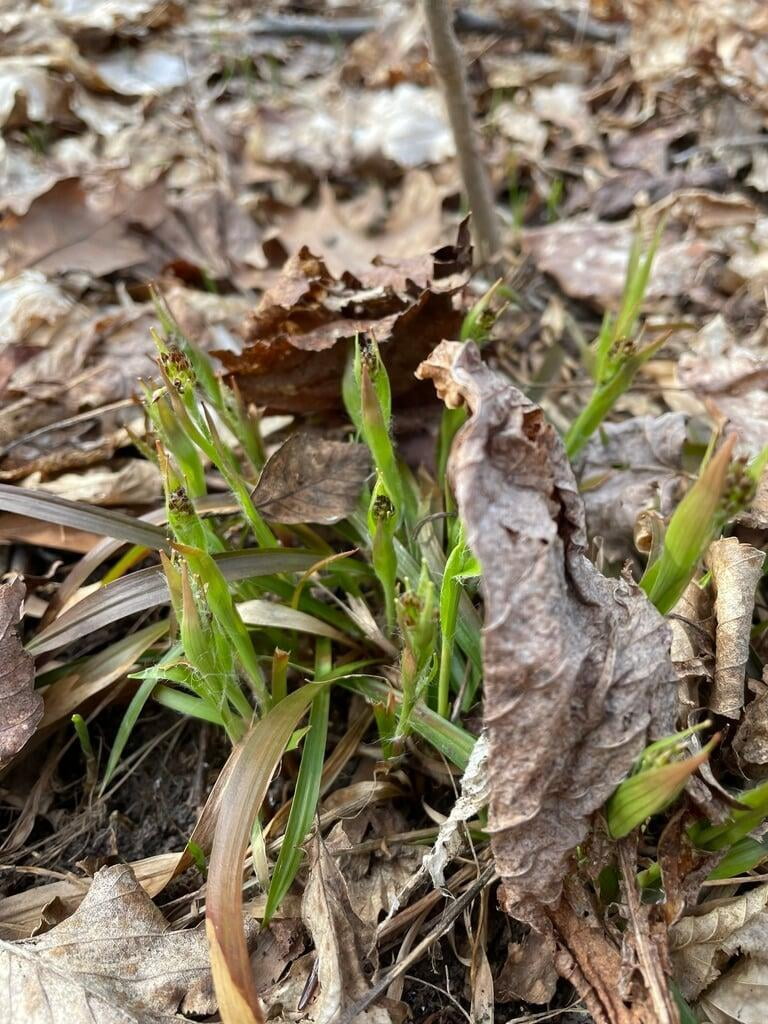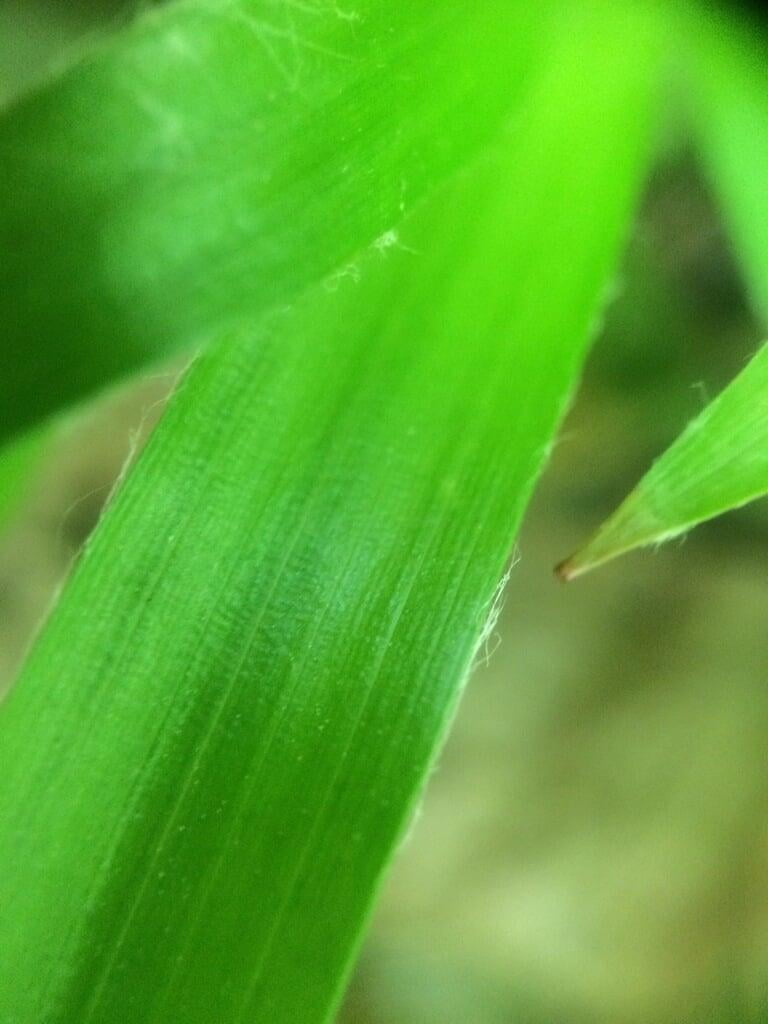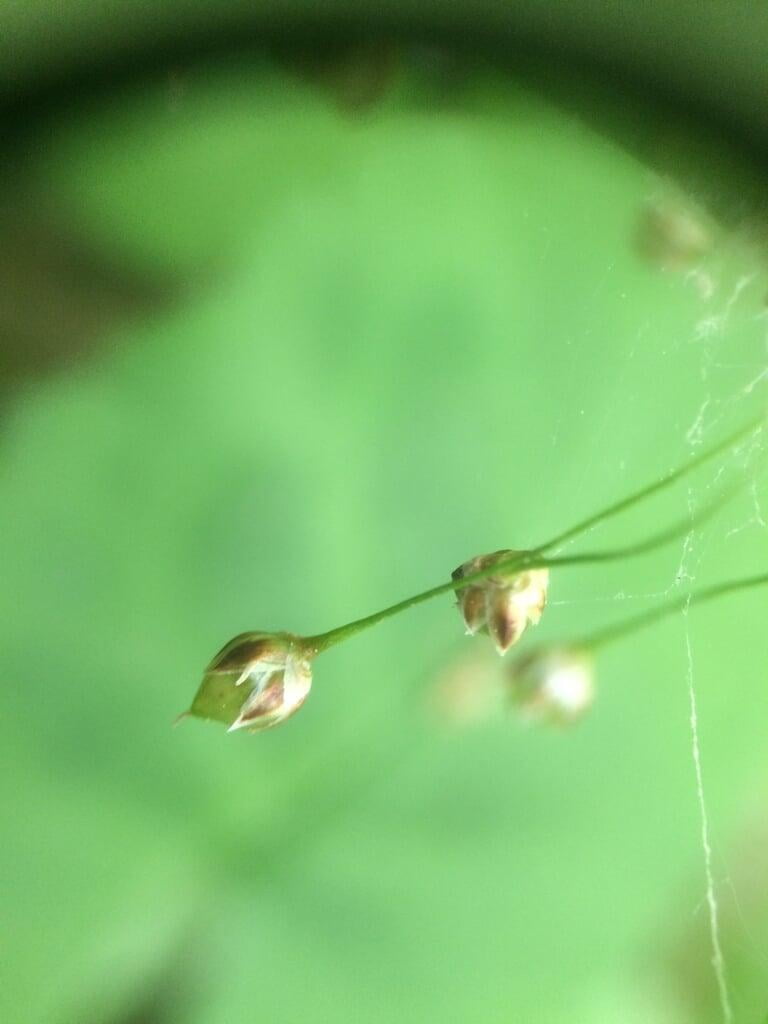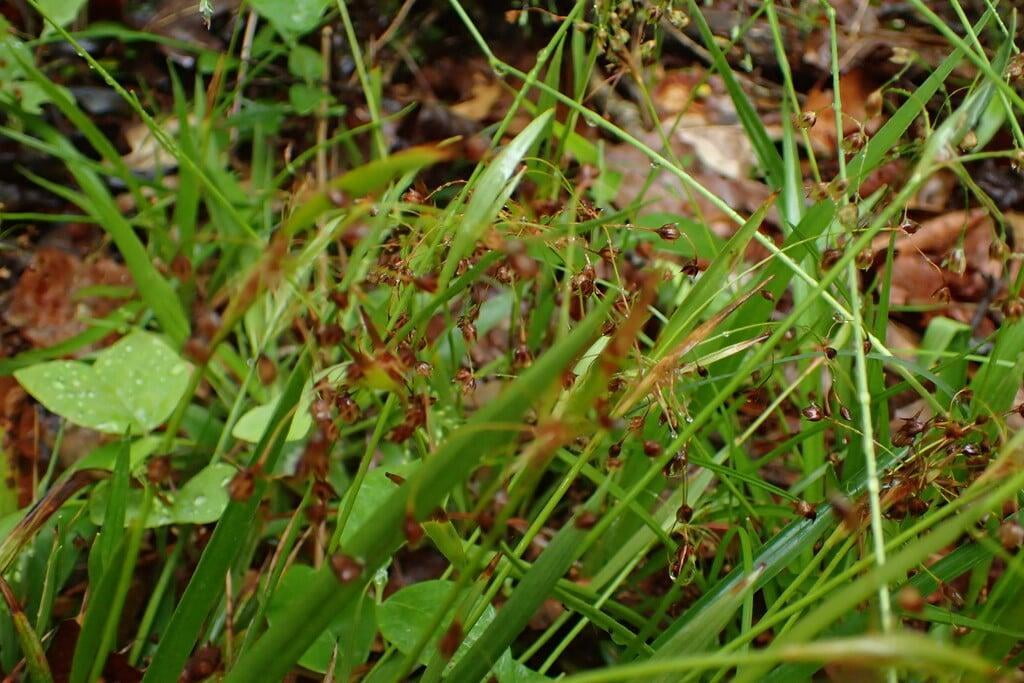Luzula acuminata
Hairy woodrush Description:
Luzula acuminata, commonly known as hairy woodrush, is a plant species in the family Juncaceae that is native to North America. It is a perennial plant that typically grows in woodland habitats and is an important component of native forest ecosystems.
Hairy woodrush can reach heights of up to 16" inches and has long, narrow leaves that are green in color and slightly hairy in texture. It produces small, inconspicuous flowers that are arranged in clusters at the ends of the stems, which typically appear in the spring and early summer.
As a cool-season plant, Luzula acuminata typically grows in the spring and early summer, and it is an important source of forage for wildlife, including deer and small mammals. It is also commonly used for landscaping purposes due to its attractive appearance and ability to thrive in shaded areas.
In addition to its ornamental and ecological value, hairy woodrush is also useful for erosion control and can be an effective tool for stabilizing soil in areas prone to erosion. It is also a shade-loving plant and can be a valuable addition to gardens or landscapes with limited sun exposure.
Overall, Luzula acuminata is an important native plant species for woodland ecosystems and has many valuable characteristics that make it a useful species for various purposes.
Native Range:
Hairy woodrush is found natively in many central and Eastern states. In Minnesota, Hairy woodrush is most commonly found growing in the central and Northern regions of the state.
Standard Plant Information:
Plant height: 4" - 16" inches
Bloom time: May - June
Preferred habitat: Does well in shade to full sun and average to moist soil. Often found in rich woods, forest clearings, ravines, and stream banks.
Sowing:
For most homeowners, the best option is to scatter seed on the ground by hand broadcasting at a minimum of 15-16 pls lbs per acre. For even coverage, we recommend that you broadcast seed in perpendicular rows across the site to ensure even coverage.
Planting:
Simply dig a hole in the soil slightly larger than the plant’s roots. Ensure that the soil line of the plant is maintained during the transfer (i.e. the plant should be at the same level with the ground as it was in the pot). Pack any loose dirt back around the plant and make sure you water it well the same day to ensure it has the best chance of survival.

